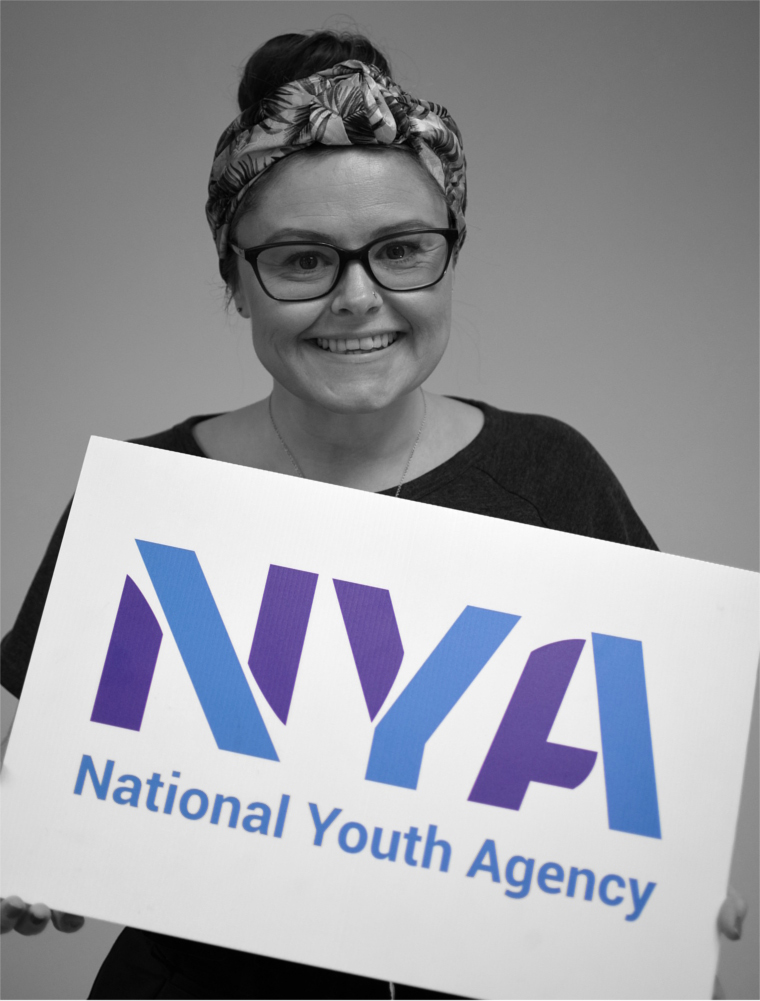Youth workers help young people to improve their lives in ways and places that parents and teachers may struggle with. Abbee McLatchie, Director of Youth Work at the NYA, sheds light on how youth workers can help.
Abbee McLatchie, Director of Youth Work at the NYA
What do youth workers do when they engage in quality youth work?
First comes trust – next comes growth
Youth work is unique in that it seeks to develop a relationship with young people first, and then uses this relationship as a basis for working with those young people to improve their lives.
In developing this relationship, youth workers take time to understand the lives of the young people they work with; their knowledge, experiences and views, their relationships with their peers, their communities, and the agencies and organisations which affect their lives and which might support or challenge them.
Using this understanding, youth workers engage with young people – individually and in groups – in a process of negotiated development. They support young people in exploring and challenging their own knowledge and skills to identify areas for growth, investigating the world around them with a view to increasing their agency and influence in it, and working with them to develop personal and social goals and plans to work towards.
Young people have the power to set the pace
The work is led by the young people. That means it takes place at a pace they are comfortable with, starting from their own starting point, and with outcomes they identify.
The role of the youth worker is to challenge, support, question and offer guidance to ensure that the young people feel safe and confident to achieve more, and always to listen.
The NYA is the national champion of this work
At the National Youth Agency we have a role, as the professional regulatory body, in ensuring the quality of youth work training. We are a voice for the sector with government and related agencies, and we support the practice through research, information, guidance and networks.
How do youth workers support young people in ways different to teachers or parents?
Youth work takes place in settings where young people choose to be. This is usually in youth centres or on the streets, but also sometimes in settings such as schools, prisons, churches or cafes – the key point being that there is no compulsion for the young people to engage unless they want to, and they are free to disengage without judgement.
The youth work relationship shares some elements with the relationships which teachers, parents, social workers and friends have with young people, but there are also some key differences.
The youth work relationship is voluntary
When participating in youth work development, the young person chooses whether or not to engage, and how that engagement starts and ends.
Youth work activity has a structured purposes but takes an informal approach
Youth work is concerned with learning, but is always informal. Learning takes place through dialogue and reflection upon real experience. It seeks as far as possible to transfer power to the young people, giving them agency in any decisions which affect them.
How can youth workers support a young person who is looking for work?
The starting point for youth work is always conversation, and the development of trust and understanding.
For example, a youth worker might try to establish the reason why the young person is looking for work. Is it to pay the rent or begin a career? What skills do they have? What skills or experience might they need? What agencies might help them? What steps can they take to get them closer and when can they take those steps?
The youth worker would walk with the young person through these steps, taking time regularly to reflect with the young person, take stock, and work out what’s next.
How can youth workers support a young person with additional barriers to employment, mental health, confidence, skills development or education?
Youth workers tailor support and guidance to each young individual’s needs
The youth worker would work with the young person to identify what the additional barriers are there, and to discuss strategies to overcome them. What these are depends on the young person, but the relationship the youth worker has with the young person should give them a different insight into what the issues are, and therefore put them in a better position to offer effective support and guidance.
For example – if a young person is struggling with education because they have caring responsibilities and so lack time, a useful approach may be to support them in getting help with those responsibilities, rather than setting up a homework club to help with their studies.
The youth work relationship offers additional insights to support making such decisions.
How can parents and schools engage with local youth workers in their area?
Youth work is a community practice, and benefits from a deeper insight into communities;
Go and talk to them, make yourself available and explore ways you can work together. It might be fun!














